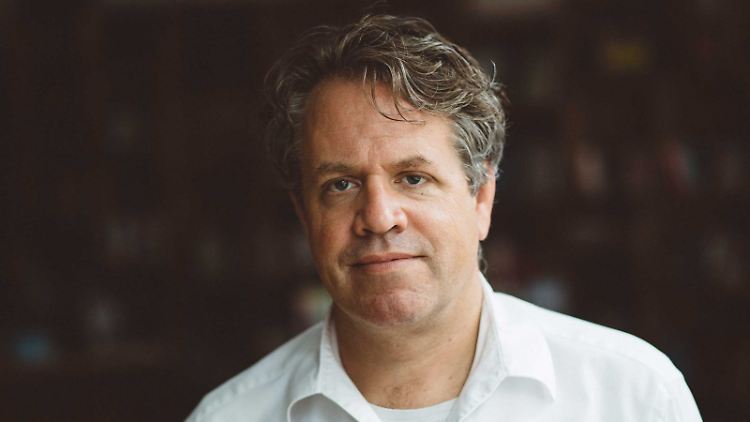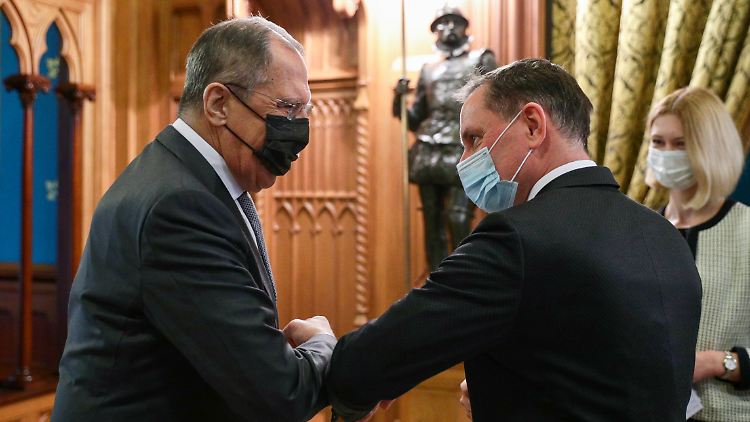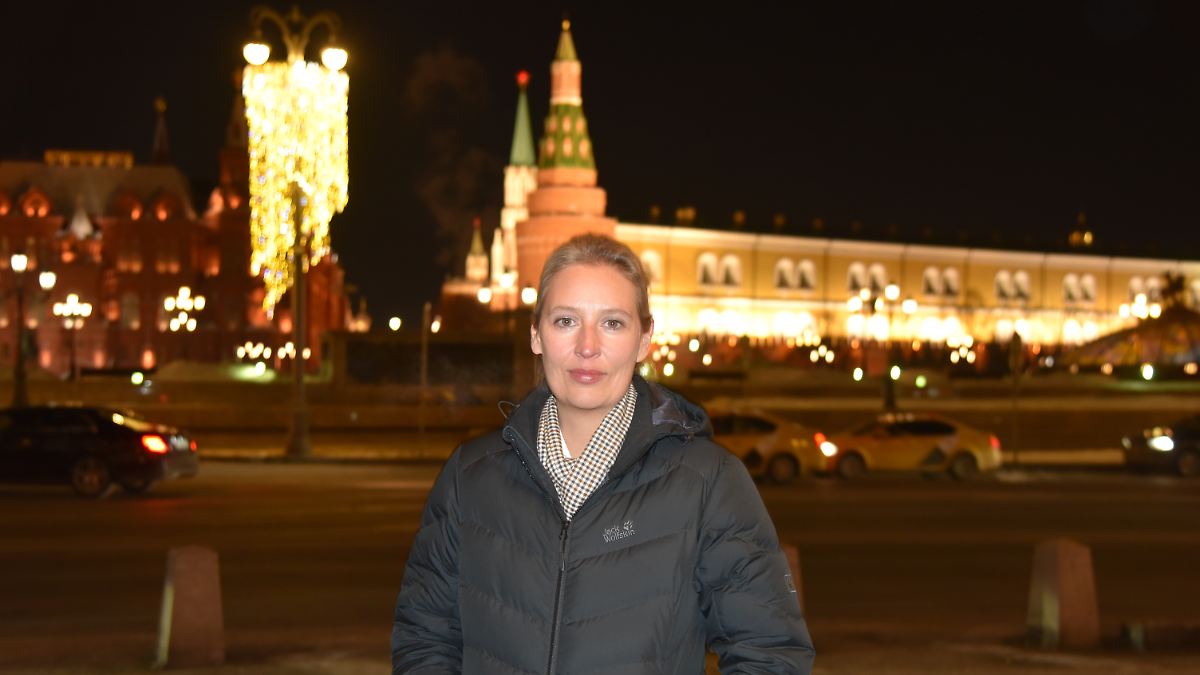The AfD and Russia have been close for years, and little has changed after Putin's war of aggression in Ukraine. AfD MPs are still traveling to Moscow – and there are ardent Putin fans in the party's Bundestag offices. The AfD-Bavaria is even demanding that the Free State start special negotiations with Russia. Marcus Bensmann from the research network explains why Russia is so interesting for the AfD Corrective examined.
ntv.de: Why is Russia so important for the AfD? Does the party want to address such an issue or is it about potential votes?
Bensmann: The AfD is always concerned with getting votes. The pro-Russia demeanor may still be popular in the new federal states, but certainly less so in the western federal states. It's more of a cocktail of different perspectives: Germany's right-wing nationalist ideology has a strong hatred of the USA and liberal democracies. Added to this is Russian kitsch and the right-wing longing to be able to dominate Europe together with Russia. In addition, there are apparently still many Komsomol members of German-Soviet friendship in the AfD.
What goal is the AfD pursuing with its course towards Russia?
The AfD's top candidate for the European elections, Maximilian Krah, and the nationalistic chief ideologist Björn Höcke are very clear on this. The liberal democracies of the political West are to be destroyed with the help of Russia. The Western value system is denigrated as a “rainbow empire”. For Krah, the Russian invasion of Ukraine is a sign of the decline of the West. Krah is betting on a Russian victory because “the political right could win from it.” Höcke, the strong man in the AfD, is voting for “the East” in this war.


Marcus Bensmann from the Correctiv research network
What is your impression: Is this Russia-friendly position firmly anchored in the minds of AfD politicians? Is there an ideology behind it?
There are economic knights. This includes AfD member of the Bundestag Stefan Keuter from Essen. He had hardly anything to do with Russia, and as soon as he was in the Bundestag, he attended receptions at the Russian embassy and was invited as an appointed election observer. However, there is this deep-seated ethnic ideology that wants to destroy the free West and liberal democracy and to achieve this, people like Höcke and Krah are apparently prepared to enter into an alliance with Putin and the Kremlin.
Does the AfD also benefit financially from Russia?
There are always rumors. The “Spiegel” has researched that customs found larger amounts of cash in the hands of an AfD member of the Bundestag when he came from Russia. Then of course we have the donation affair, which Correctiv, among others, researched and found out a lot about, but that was where the multi-million dollar campaign support from Switzerland was organized.
My current research focuses primarily on the AfD's programmatic turn to Russia. The AfD also has enough funds because it sits in parliament. However, I got one impression from my research: They don't do it out of any obligation, they do it out of conviction.
How close is the AfD to the Russian government?
The AfD leadership has regularly traveled to Moscow since 2017. Alice Weidel and Tino Chrupalla, who lead the AfD and the AfD parliamentary group, traveled to the Russian capital before the war and were received by Russian Foreign Minister Sergei Lavrov. This is the really big stage. And on these trips, Weidel and Chrupalla did not criticize democratic deficits in Russia, but instead advocated for the sanctions against Russia to be lifted.
The AfD serves, observes elections and certifies that the Russians have “democracy”. A win-win situation or does one side get more out of it?
Russian President Vladimir Putin wants to dismantle Europe's democracies as a whole, and he will use any means to achieve this, and so he is courting right-wing movements like the AfD in Germany. The AfD feels that it is being taken seriously and is courting Putin. Both hope to gain power in Europe and Germany. That's what's actually dangerous.


Russia's Foreign Minister Sergei Lavrov and AfD leader Tino Chrupalla meet in Moscow in December 2020.
(Photo: picture alliance/dpa/TASS)
How massive is the influence of the Russian government here in Germany, which the AfD enables?
Before the war, the Russian networks in the SPD were of course more effective in terms of directly influencing German government action. The AfD's proximity to Russia does not yet have an impact on the traffic light government. But the AfD creates atmosphere and fuels conflicts. And Russia uses everything that divides societies in democracies.
Russian-German AfD MPs and Russian employees have access to the Bundestag – how dangerous is that?
That's a problem. There is a pro-Russian faction in the Bundestag that has access to sensitive information. But every person who voted for the AfD is responsible for this.
Are we overestimating the role of the AfD here?
The AfD is polling around 20 percent. It is a party that wants to lead the Federal Republic out of its ties to the West and sees the USA as a “foreign power”. The ties to the West, the Atlantic alliance with the USA, and the anchoring in NATO secured democracy and prosperity for Germany and Europe after the Second World War, and yes, they enabled Germany to reunify. The fact that a party now has 20 percent approval and is questioning all of these achievements is quite remarkable. Because the choice is actually pretty clear: Western ties or Eurasia, Miami or Siberia. If the USA no longer assumes its role as a protective power over Europe, Putin will come clean.
Why does Bavaria play such a big role?
Elections will take place in Bavaria on October 8th. And the Bavarian regional association is extremely pro-Russian. He passed a “Bavarian Dialogue Initiative” in which all of this is very clear. “Bavaria as a bridge builder between East and West instead of as a supporter of Biden's one-sided US interests and geopolitics for a targeted division of Eurasia” and demands that the Free State start special negotiations with Russia. This sentence is explosive. This means that the AfD no longer locates Bavaria and Germany as part of the Western ties, but rather in Eurasia. For the AfD, the USA does not ensure democracy and freedom in Europe, but rather divides. The question is how many Bavarian voters support this course and want to lead Germany and Bavaria to Russia.
After the attack on Ukraine, some AfD MPs were dismissed by the board and were not allowed to travel to the occupied territories. Is it now getting too tricky for the AfD too?
At the beginning of the war there were also people in the AfD who sided with Ukraine, and it took the AfD some time to find its course. The provocative travel planning of the AfD members of the state parliament to the areas occupied by the Russian army took place during this time. But now the train has left. The AfD has sided with Russia in this war, and Ukraine's few supporters are in the minority.
Why is the term “Eurasia” so problematic and who created this term?
At first glance, Eurasia sounds harmless. It is a term from geology and describes the contiguous landmass of Europe and Asia. But the Russian nationalists, especially Alexander Dugin, shaped this geological description into a fighting concept. Eurasia is to become an area of power dominated by Russia and from which the USA is driven out. The Kremlin has adopted this choice of words. Former Russian President Dmitri Medvedev, one of the toughest warmongers in Moscow, formulated exactly this after the Russian attack on Ukraine: He wants an economic area from Lisbon to Vladivostok, which would then of course be dominated by Russia.
A second term is the “multipolar world order”. That sounds harmless at first. Chancellor Olaf Scholz also uses “multipolar world”. He describes a world with multiple centers of power, such as India, Brazil, China, Russia and the USA. And once again, Russian nationalists and the Kremlin have made this a fighting concept.
The USA is to be driven out of a “multipolar world order” as a regulatory power, and in every region the major power there can act as it pleases towards the neighboring states and the people. Universal human rights and the sovereignty of a state within a hegemon's sphere of influence no longer apply. We can now see in Nagorno-Karabakh what this means if “the multipolar world order” becomes reality. Turkey, Russia and Azerbaijan control the fate of 150,000 people, whether they face expulsion, death or torture. And both terms can also be found in the AfD. And you could translate it that way too. Germany has a choice: Eurasia or western ties, Miami or Siberia.
Dimitri Blinski spoke to Marcus Bensmann




